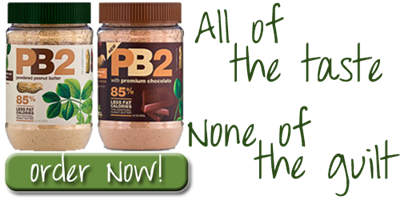The following was posted over at acefitness.org
Sir William Osler, the famous Canadian medical doctor, once quipped, “There’s only one way to treat the common cold—with contempt.” And for good reason. The average adult has two to three respiratory infections each year. That number jumps to six or seven for young children.
Whether or not you get sick with a cold after being exposed to a virus depends on the many factors that affect your immune system. Old age, cigarette smoking, mental stress, poor nutrition and lack of sleep have all been associated with impaired immune function and increased risk of infection.
Keeping the Immune System in Good Shape
Research has established a link between moderate, regular exercise and a strong immune system. Early studies reported that recreational exercisers reported fewer colds once they began running. Moderate exercise has been linked to a positive immune system response and a temporary boost in the production of macrophages, the cells that attack bacteria. It is believed that regular, consistent exercise can lead to substantial benefits in immune system health over the long term.
More recent studies have shown that there are physiological changes in the immune system as a response to exercise. During moderate exercise, immune cells circulate through the body more quickly and are better able to kill bacteria and viruses. After exercise ends, the immune system generally returns to normal within a few hours, but consistent, regular exercise seems to make these changes a bit more long-lasting.
According to professor David Nieman, Dr. PH., of Appalachian State University, when moderate exercise is repeated on a near-daily basis there is a cumulative effect that leads to a long-term immune response. His research showed that those who perform a moderate-intensity walk for 40 minutes per day had half as many sick days due to colds or sore throats as those who don’t exercise.
On the other hand, there is also evidence that too much intense exercise can reduce immunity. Research shows that more than 90 minutes of high-intensity endurance exercise can make athletes susceptible to illness for up to 72 hours after the exercise session. This is important information for those who compete in longer events such as marathons or triathlons. Intense exercise seems to cause a temporary decrease in immune system function. During intense physical exertion, the body produces certain hormones that temporarily lower immunity. Cortisol and adrenaline, known as the stress hormones, raise blood pressure and cholesterol levels and suppress the immune system.
Should you exercise when sick?
Fitness enthusiasts and endurance athletes alike are often uncertain of whether they should exercise or rest when sick. Most sports-medicine experts in this area recommend that if you have symptoms of a common cold with no fever (that is, symptoms are above the neck), moderate exercise such as walking is probably safe.
Intensive exercise should be postponed until a few days after the symptoms have gone away. However, if there are symptoms or signs of the flu (fever, extreme tiredness, muscle aches, swollen lymph glands), then at least two weeks should probably be allowed before you resume intensive training.
Staying in Shape to Exercise
For athletes who are training intensely for competition, the following guidelines can help reduce their odds of getting sick.
Eat a well-balanced diet — The immune system depends on many vitamins and minerals for optimal function. However, at this time, there is no good data to support supplementation beyond 100% of the Recommended Dietary Allowances.
Avoid rapid weight loss — Low-calorie diets, long-term fasting and rapid weight loss have been shown to impair immune function. Losing weight while training heavily is not good for the immune system.
Obtain adequate sleep — Major sleep disruptions (getting three hours less than normal) have been linked to immune suppression.
Avoid overtraining and chronic fatigue — Space vigorous workouts and race events as far apart as possible. Keep “within yourself” and don’t push beyond your ability to recover.
Additional Resource
American College of Sports Medicine Current Comment—Exercise and the Common Cold: www.acsm.org



